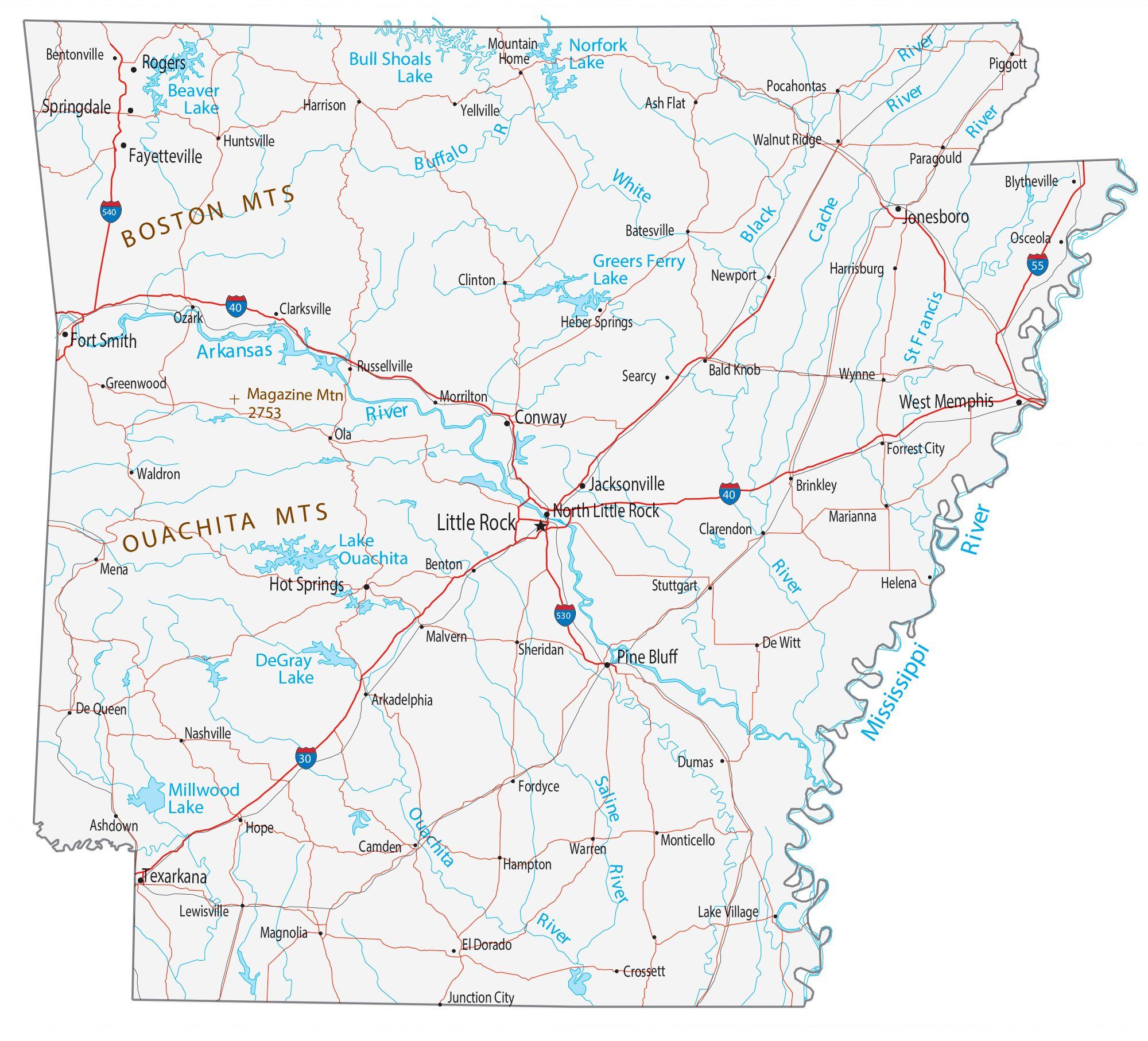Understanding the Arkansas septic tank laws is crucial for homeowners and property owners. Adhering to Arkansas environmental laws ensures compliance with local and state regulations, protects public health, and safeguards natural resources. Septic systems play a vital role in Arkansas wastewater management, so it’s essential to follow the guidelines set by the Arkansas health department rules and septic system permits. This article will guide you through Arkansas septic system requirements, septic installation in Arkansas, and everything you need to know about Arkansas sewage disposal regulations.
- Installation Permits
- How to Obtain an Arkansas Septic Permit
- Septic Tank Size and Placement Guidelines
- Wastewater Disposal Rules
- Maintenance and Pumping Requirements
- Legal Compliance Guidelines
- Costs Related to Septic Systems
- Local Resources and Contact Information
- Supportive Resources
- How to File a Complaint
- FAQs About Arkansas Septic Tank Laws
Installation Permits
Do You Need a Permit for Septic Installation in Arkansas?
Yes, obtaining an Arkansas septic permit is a necessary step for installing or modifying any septic system in the state. The Arkansas Department of Health oversees these permits to ensure compliance with Arkansas septic system requirements and Arkansas environmental laws.
How to Obtain an Arkansas Septic Permit
- Application Submission: Property owners must submit a detailed application to the Arkansas Department of Health.
- Site Evaluation: A site evaluation will be conducted to assess soil conditions, water tables, and drainage capacity.
- Plan Approval: Submit your system design and installation plans, which must adhere to Arkansas environmental laws.
- Inspection Approval: Once installation begins, the system must pass an inspection to confirm compliance with all requirements.
Cost of Installation Permits
The cost of Arkansas septic system permits varies depending on your county and the scope of the project. On average, you can expect to pay between $200 and $500. Costs may also vary based on the complexity of your installation plan and the size of the system you’re planning to install.
Septic Tank Size and Placement Guidelines
Arkansas Septic Tank Size Regulations
The size of your septic tank in Arkansas is determined by the number of bedrooms in your home and the expected wastewater flow. The Arkansas health department rules recommend the following:
- 1-2 Bedroom Homes: 750-gallon tank
- 3-4 Bedroom Homes: 1,000-gallon tank
- 5+ Bedroom Homes: 1,500-gallon tank
Adhering to these Arkansas septic system requirements ensures proper wastewater treatment and prevents overflow issues.
Drain Field Placement Requirements
Proper placement of your drain field is crucial under Arkansas sewage disposal regulations. Here’s what you need to know:
- Setback Requirements: The drain field must comply with setback distances outlined by Arkansas environmental laws to avoid contamination of nearby wells or water sources.
- Soil Evaluation: A site evaluation ensures soil quality is sufficient for absorption and drainage. Soil must have proper texture, depth, and permeability.
- Distance Guidelines: Drain fields are typically placed a minimum of 100 feet away from water sources, following Arkansas health department rules.
Wastewater Disposal Rules
Arkansas Sewage Disposal Regulations
The Arkansas sewage disposal regulations aim to prevent environmental contamination and protect public health. Here are the key requirements:
- Proper Disposal of Wastewater: Wastewater must be treated through a compliant septic system to prevent pollutants from entering the environment.
- Disposal Restrictions: Discharging untreated wastewater into streets, rivers, or open fields is strictly prohibited under Arkansas environmental laws.
- Compliance with State Health Codes: Property owners must follow Arkansas health department rules, ensuring that all septic systems meet state wastewater disposal standards.
By adhering to these guidelines, homeowners contribute to Arkansas wastewater management efforts and protect the environment.
Maintenance and Pumping Requirements
Recommended Pumping Schedules
Regular maintenance and pumping are critical to maintaining your septic system. Following Arkansas septic system requirements helps prevent costly breakdowns and prolongs system life. Here’s a general guideline:
- Small Tanks (750 gallons): Every 2-3 years
- Medium Tanks (1,000 gallons): Every 3-5 years
- Large Tanks (1,500 gallons): Every 5-7 years
Following these Arkansas septic system requirements ensures the system remains functional and compliant with Arkansas environmental laws.
Inspection Requirements
- Regular inspections by state-certified professionals are essential to meet Arkansas health department rules.
- Inspections check for system integrity, proper drainage, and overall functionality.
- Keeping detailed records of maintenance activities helps demonstrate compliance with Arkansas septic permits requirements.
Legal Compliance Guidelines
Consequences of Non-Compliance
Failing to comply with Arkansas septic tank laws can result in significant penalties. These include:
- Fines: Property owners may face fines ranging from $500 to $5,000, depending on the violation’s severity.
- Legal Action: Repeated violations can result in legal action and potential criminal charges.
- System Failure Costs: Non-compliance may result in costly repairs and system replacements due to damage or environmental contamination.
Environmental Protections Under Arkansas Environmental Laws
The Arkansas environmental laws include specific protections to preserve the natural landscape and public health:
- Strict adherence to Arkansas wastewater management guidelines.
- Emphasis on maintaining clean water sources by ensuring proper wastewater treatment.
- Compliance with Arkansas sewage disposal regulations safeguards the environment and community health.
Costs Related to Septic Systems
Typical Costs for Septic Maintenance and Installation in Arkansas
Understanding the costs associated with your septic system is essential for homeowners. Here’s a breakdown of typical costs:
- Permit Fees:
- The cost of an Arkansas septic permit typically ranges from $200 to $500.
- Pumping Costs:
- Regular septic pumping costs around $300 to $600, depending on tank size and accessibility.
- Installation Costs:
- A standard septic installation in Arkansas can cost between $3,000 and $8,000, depending on system size and soil conditions.
- Factors like labor, permits, and materials can also affect the final cost.
Local Resources and Contact Information
State Agencies Responsible for Septic Systems
- Arkansas Department of Health:
- This agency manages the installation, maintenance, and permitting of septic systems, ensuring compliance with Arkansas health department rules.
- Arkansas Department of Environmental Quality (ADEQ):
- ADEQ oversees environmental compliance, wastewater management, and Arkansas sewage disposal regulations.
Finding Certified Septic Service Professionals
- Look for state-certified septic service companies by checking local business directories and professional associations.
- Contact local health departments and environmental protection agencies to get referrals to reputable service providers.
Supportive Resources
Government and Environmental Agencies
- Arkansas Department of Health Website: www.healthy.arkansas.gov
- ADEQ Resources: www.adeq.state.ar.us
Handbooks and Downloadable Guides
- Many local health departments offer free downloadable guides and handbooks on Arkansas septic system requirements.
- Infographics and maintenance guides are available online, offering insights into Arkansas wastewater management, septic installation, and proper system maintenance.
How to File a Complaint
If you notice a leaking or malfunctioning septic system, you can file a complaint with the Arkansas Department of Environmental Quality (ADEQ). Anonymous reports are accepted, ensuring your confidentiality. Complaints can be submitted through the ADEQ’s online portal or by using the contact details provided on their official website.
For more information and to make a complaint, visit the Arkansas Department of Environmental Quality: https://www.adeq.state.ar.us
Arkansas Department of Health.
ADEQ Water
5301 Northshore Drive
North Little Rock, AR 72118-5317
Phone: (501) 682-0657
Fax: (501) 682-0910
Understanding and following the Arkansas septic tank laws is essential for homeowners to comply with Arkansas environmental laws, protect public health, and preserve natural resources. From Arkansas septic system permits and septic tank sizing guidelines to wastewater disposal and legal compliance, property owners must adhere to state regulations to avoid penalties and costly repairs. Utilizing local resources, consulting professionals, and referring to official guidelines from the Arkansas Department of Health and ADEQ ensures a compliant and well-maintained septic system. Following these practices not only safeguards your investment but also contributes positively to Arkansas wastewater management and the environment.
FAQs About Arkansas Septic Tank Laws
Do I Need a Permit to Install a Septic Tank in Arkansas?
Yes, an Arkansas septic permit is required before installing a new septic system or making modifications to an existing one. This ensures compliance with Arkansas environmental laws and Arkansas health department rules. Permits are issued by the Arkansas Department of Health, and guidelines must be followed to meet state regulations.
How Much Does an Arkansas Septic Permit Cost?
The cost of an Arkansas septic permit typically ranges between $200 and $500, depending on the county and the scope of the project. Factors such as system size, location, and required inspections can also influence the price.
What Are the Requirements for Septic Tank Size and Placement in Arkansas?
The recommended size of your septic tank depends on the number of bedrooms in your home:
- 1-2 Bedroom Homes: 750-gallon tank
- 3-4 Bedroom Homes: 1,000-gallon tank
- 5+ Bedroom Homes: 1,500-gallon tank
Placement must adhere to Arkansas health department rules, with setback distances to prevent contamination of water sources.
How Often Should I Pump My Septic Tank in Arkansas?
Recommended pumping schedules depend on the tank’s size and household usage:
- 750-gallon tank: Every 2-3 years
- 1,000-gallon tank: Every 3-5 years
- 1,500-gallon tank: Every 5-7 years
Regular maintenance prevents system failures and costly repairs, ensuring compliance with Arkansas septic system requirements.
What Wastewater Disposal Methods Are Allowed Under Arkansas Regulations?
Wastewater in Arkansas must be properly managed to meet Arkansas sewage disposal regulations. Some compliant disposal methods include:
- Onsite septic systems
- Engineered drip dispersal systems
- Properly managed drain fields
Discharging wastewater into streets, rivers, or open areas is strictly prohibited under Arkansas environmental laws.
What Happens if I Don’t Comply with Arkansas Septic Tank Regulations?
Failure to comply with Arkansas septic tank laws can result in:
- Fines: Ranging from $500 to $5,000
- Legal Penalties: Possible criminal charges for repeated violations
- System Repair Costs: Significant expenses to replace or fix malfunctioning systems
Compliance ensures environmental protection and public health safety, as stipulated by Arkansas health department rules.
How Do I Find Certified Septic Service Professionals in Arkansas?
Certified septic service professionals can be found by contacting:
- Your local health department
- The Arkansas Department of Health
- Professional associations or directories listing state-certified septic service providers
These services ensure that installation, pumping, and inspections adhere to Arkansas environmental laws and septic system requirements.
What Are the Typical Costs for Septic System Installation in Arkansas?
The cost of a new septic installation in Arkansas can vary based on location and system size:
- Basic Installation: $3,000 to $5,000
- Advanced Systems (Larger Septic Tanks): $6,000 to $8,000
Permit fees and soil evaluations may also contribute to overall costs.
Are There Special Environmental Protections Under Arkansas Laws Regarding Septic Systems?
Yes, Arkansas environmental laws emphasize safeguarding:
- Clean Water Sources: Prevent contamination of wells, rivers, and streams.
- Soil Health: Ensure proper soil absorption and drainage.
- Wastewater Regulations: Strict adherence to septic system placement and design requirements.
Compliance with these protections helps preserve Arkansas wastewater management standards.
How Do I Obtain Free Guides and Resources on Arkansas Septic Regulations?
Many local health departments and state agencies offer free downloadable resources:
- Arkansas Department of Health: Provides comprehensive handbooks and downloadable guides for homeowners about septic installation, maintenance, and wastewater treatment.
- Visit Arkansas Department of HealthArkansas Department of Health to find essential resources for your septic system needs.
These guides ensure compliance with Arkansas septic system requirements and provide insights into proper maintenance and installation.
Can I Install My Own Septic System in Arkansas?
West Virginia Septic Tank Regulations: What Homeowners Must Know
Vermont Septic System Regulations: What Homeowners Need to Know
Wisconsin Septic System Rules for Property Owners
Understanding Ohio Septic Tank Laws: A Homeowner’s Guide
NH Septic Tank Size Requirements: A Complete Guide







